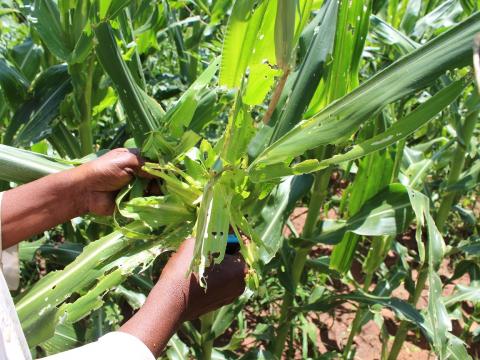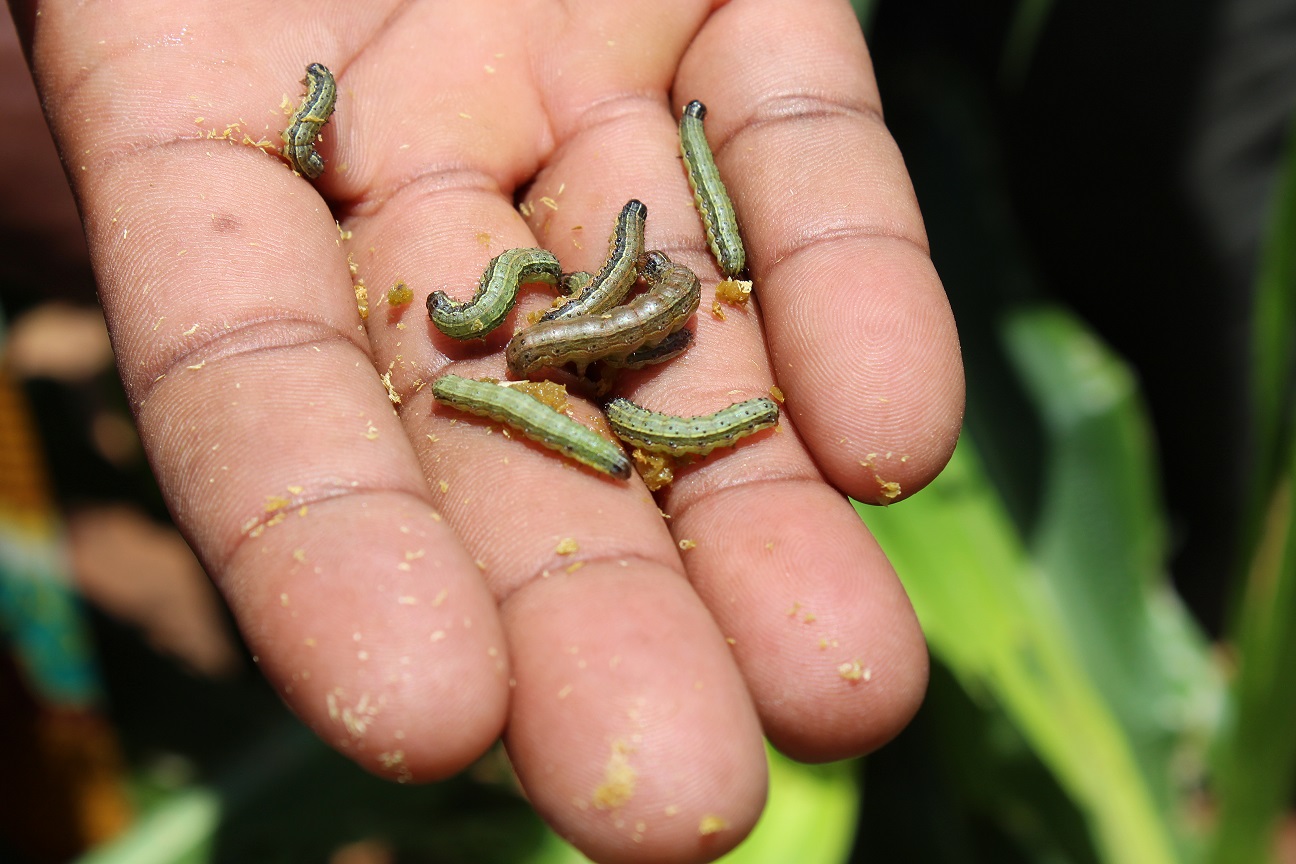Fall armyworms threaten over 500 hectares of farms in Zimbabwe

Matabeleland - After the devastating drought, farmers in Zimbabwe are looking forward to improved yields in the 2017 farming season with the rains across the country. The La Nina-induced rains have brought relief to farmers who expect a bumper harvest as a result of favorable conditions for the planting of crops.
However, the outbreak of the fall armyworm locally called Imihogoyi or makonye has the potential to negatively affect crop yields by 1- 10%. The worms which is affecting the maize crops, has spread across the country. In Matabeleland, the outbreak had already affected 523 hectares.
“The fall army worm epidemic is widespread now, all the provinces are affected including the peri-urban areas of Harare and Bulawayo. At the moment we cannot ascertain the total magnitude of the damage as we are currently assessing affected areas. Farmers are also doing something to eliminate the pest,” says Dr Godfrey Chikwenhere, Deputy Director, Department of Research and Specialist Services of the Ministry of Agriculture, Mechanisation and Irrigation Development.
“This is a fairly new pest affecting mainly the maize crop. We suspect it could have been in the country for the past few years. We are controlling the pest as it comes through chemicals to eradicate it. We are continuously investigating it, to see whether or not it will affect the post-harvest,” Dr. Chikwenhere adds.
The ministry of Agriculture said a total of 1, 243, 624 hectares of maize was put under cultivation country wide. Fears are that if the pest is not put under control it might have a devastating effect to people’s food security who are still recovering from the grappling effects of the El Nino induced drought.
The fall army worm is affecting ordinary farmers including those under the government’s Command Agriculture Initiative whose main objective is to ensure food self-sufficiency. It involves 2,000 farmers supported by the government with agricultural inputs.
Farmers in Gwanda are imploring responsible authorities to intervene as they do not have adequate chemicals to control the pest. Sheila Sibanda Chair of the Makwe Irrigation Scheme in Gwanda, who has been farming for the past 37 years, said the pest has put out their hopes of improved yields from their 45 hectares which is under cultivation.
“We were looking forward to an increased crop yield, but the fall armyworm outbreak will reduce our expectations. The pest affected the crop from the time it was at knee-level stage up to tasseling phase,” she said.
She appealed to authorities for sufficient pesticides to control the spread of the pest since the current pesticides are ineffective. The Plant Protection Research Institute says the fall armyworm usually attacks all the parts of the crop from the vegetative to the productive stage. This pest feeds at night and hides during the day making it difficult to eliminate it.
World Vision is complementing government efforts by providing logistical support such as the transportation of some pesticides from Harare to affected areas which include Matabeleland South Province and Mashonaland West composed of Banket, Chinhoyi, Kadoma, Raffingora, Gokwe and Sanyati.
Experts confirm the armyworms’ negative economic impact. An estimated US$37,000 was already used to control the pest on 200 hectare maize crop by Mary Ellen, a farmer in Bubi District, Matabeleland North Province.
